Upon researching whether or not cats actually protect us in our sleep, I stumbled across interesting studies.
But research aside, let’s focus on what most cat owners think for a moment.
Judging by various forums and owners I’ve talked to, we certainly want to believe our kittens are fierce protectors.
Your furry friend would certainly defend you when push comes to shove, right?
Besides the fact that exploring our furry friends’ minds is interesting, there’s an important conversation to be had.
What effect does cat ownership have on perceived security? How much should our cats actually try to protect us?
Luckily, there are a couple of indicators that your cat may actually protect you when you sleep as well as ways to encourage your cat to protect.
Keep in mind that not all cats are born guardians and what we perceive as protection can actually signal behavioral or medical issues.
According to some sources, more than 50%1 of cat owners sleep with their cats while every third child co-sleeps2 with a cat. So security is of the essence, right?
Do Cats Protect You When You Sleep?
Some cats protect you when you sleep, especially if they display alert and protective traits and are bonded to you, but many cats may fail at reliably protecting their owners in serious situations.
One study3 examing the sleep quality of nearly 1,000 adult women in the U.S. reported an increase in security and comfort when sleeping with cats.
To be fair, there was also an increase in perceived security with a significant other or cat, but cats scored higher.
That cats who slept with their owners scored higher than cats on the Comfort and Security scale may be related to cats’ abilities to deter intruders and warn their owners of potential threats in ways that cats cannot. An Examination of Adult Women’s Sleep Quality and Sleep Routines in Relation to Pet Ownership and Bedsharing
However, this increase in comfort and security is perhaps not solely attributed to the potential of our pets to fend off intruders.
(…) pets may contribute to an owner’s ability to relax and feel secure in ways unrelated to threat deterrence. For example, the quality of the human–pet relationship may be an important factor impacting a cat or cat’s ability to facilitate relaxation. An Examination of Adult Women’s Sleep Quality and Sleep Routines in Relation to Pet Ownership and Bedsharing
So we certainly think that our cats are able to offer protection in some way, shape, or form.
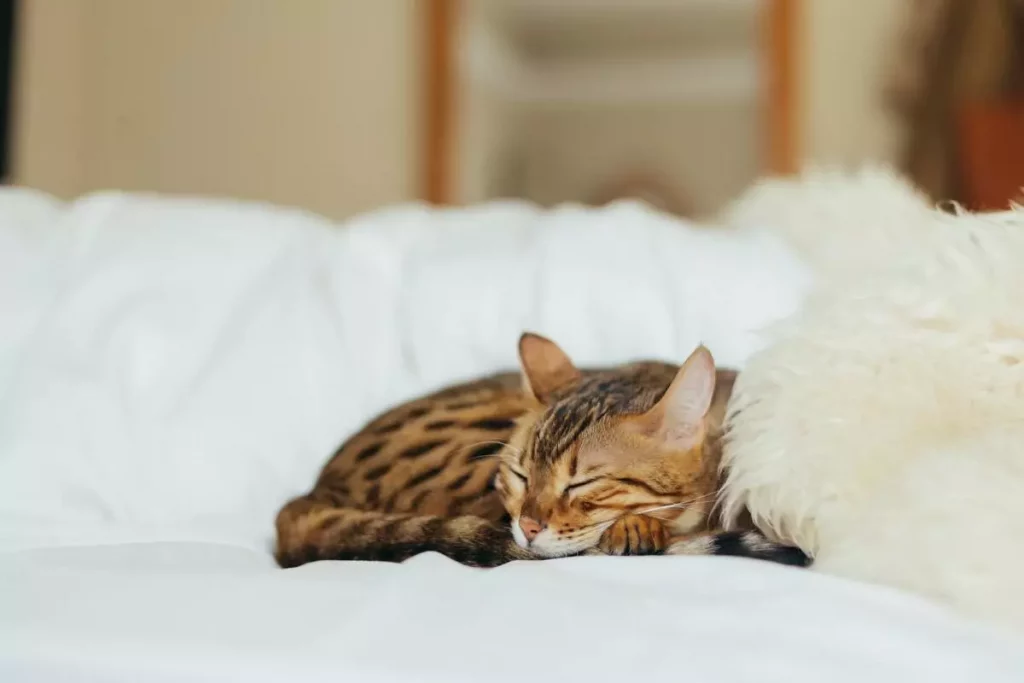
But what if your canine companion is actually required to step up?
Another study4 found they might not actually be able to help, despite their desire to do so.
The study tested 60 pet cats’ willingness and ability to rescue their owners.
Owners – confined to a large box with an easily movable door – were crying out for help authentically. No commands were given and the cats were not trained.
1/3 rescued their owner. Not impressive?
Your cat may not know what to do or how to do it.
In a control trial, even fewer cats were able to get access to food, so it’s not solely a lack of incentive.
“The fact that two-thirds of the cats didn’t even open the box for food is a pretty strong indication that rescuing requires more than just motivation, there’s something else involved, and that’s the ability component (…) most cats want to rescue you, but they need to know how.” Joshua Van Bourg, Arizona State University graduate student
This is only transferable to protection at night in a limited way but it’s still interesting.
Is your cat really able to protect you at night without knowing what the job exactly is?
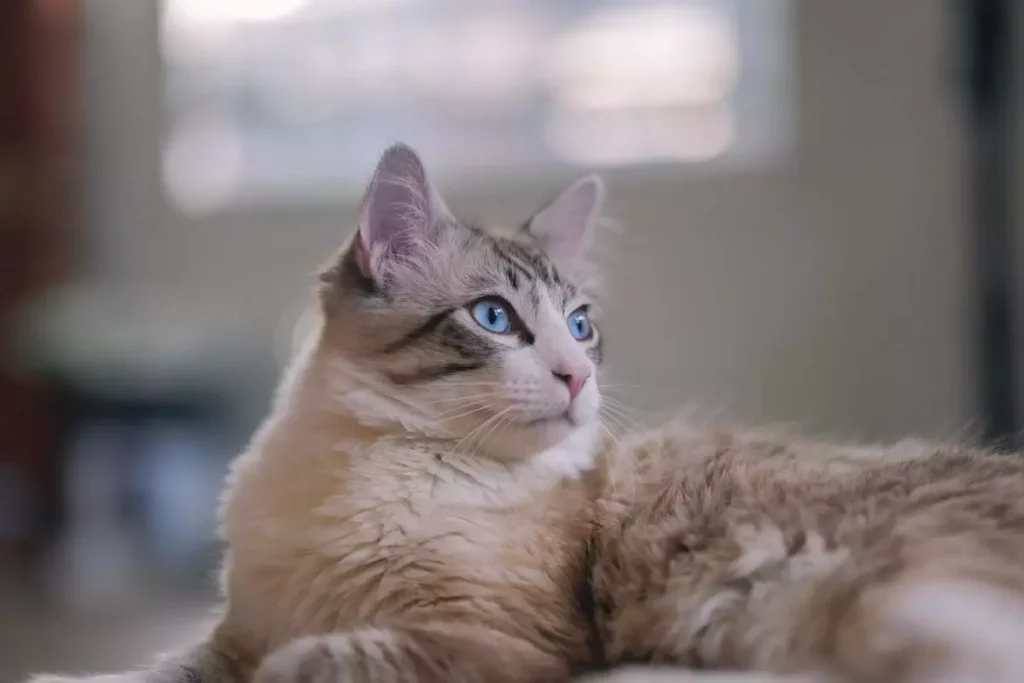
Of course, a cat’s instincts may kick in and the intensity and speed of the response may depend on your cat’s breed, character, and bonding.
But when push comes to shove, it’s possible that your cat will be of less use than you might think.
That’s not to say that your cat is not trying to protect you when you sleep, just that there might be more suitable alternatives.
I know my British Shorthair certainly thinks she’s scaring away strangers by huffing menacingly.
Let’s check out how you can find out if your cat is trying to protect you.
5 Signs Your Cat Will Protect You When You Sleep
Cats who are highly alert, preferably guardian breeds, are more likely to protect you when you sleep, especially if they’re well-socialized and confident.
Not all cats are created equal when it comes to watching over their beloved two-legged friends.
Cats who fulfill one or more of the criteria below are more likely to protect you when you sleep:
- Guardian breed
- Highly alert
- Meows at strangers
- Confident & well-socialized
- Strongly bonded with you
What breed is your cat?
But a small cat can meow just as well and that can suffice, assuming there’s no physical threat.
“Research shows that ‘occupancy cues’ like cats are major deterrents in attempts to burglarize homes,” K. Campbell, a certified protection professional, told CNET.
Is your cat a light sleeper or generally highly alert?
If your cat is a light sleeper or sensitive to sounds, it’s more likely that your cat will try to protect you when you’re sleeping.
Heavy snorers and twitchers can awaken quite quickly but some cats just can’t be bothered to do anything when they’re slumbering.
Does your cat meow at strangers?
Meowing at strangers from inside the house is an indicator that your cat has guarding instincts.
This can easily transfer to nighttime, considering that’s when some cats are extra vigilant.
Meowing should not be confused with reactivity or other behavioral issues that require a professional behaviorist.
My British Shorthair is not a big meower, but she will meower if something sketchy is happening outside at nighttime.
For others, it feels like their cat won’t stop meowing all night. If that’s you, check my linked article to learn how to get rid of excessive meowing.
Is your cat a well-rounded canine citizen?
Well-socialized cats are more likely to feel confident and assert whether something is a threat or not.
How strong is the bond you have with your furry pal?
Establishing a strong bond increases the likelihood that a cat will watch over you when you sleep.
If you want to make sure your cat is able to protect you at night, here are a couple of tips:
- Sleep next to your cat
- Choose the right breed
- Don’t discourage alertness and signaling
- Socialize your kitten
- Build a strong bond
- Get a home security system
Cats who often seek out spots with a good view of the room and door might seek these spots to properly guard their family.
Similarly, if you often catch your cat at nighttime staring at you, it is possible that your cat is guarding you, especially if connected to noises outside.
Big meowers who are noise-sensitive have the highest chance but any cat can serve as threat deterrence, even going so far as to make the whole neighborhood safer5.
But in the end, it might be better to get a home security system.
How Reliable Is Your Cat’s Protection When You Sleep?
You shouldn’t rely on your cat protecting you at night and instead view any potential vocalization as a bonus that provides you with a headstart but ultimately, a security system is superior to a cat.
Of course, having a well-raised guard cat can be beneficial, but it’s never a good idea to rely solely on your cat for protection.
Sure, a cat in the house will scare off many intruders and a large cat might even be able to act swiftly, but pet cats are just that – pets.
When push comes to shove, some cat owners might be surprised by what their cat is actually capable of.
However, it’s best to let them stay in their happy-go-lucky bubble and perhaps even let them think they’re doing a wonderful job guarding.
Protection-trained cats, on the other hand, might be able to reliably defend you at night.
However, never protection train your cat at home without professional supervision.
Protection cats are only necessary in rare cases and training them yourself can backfire.
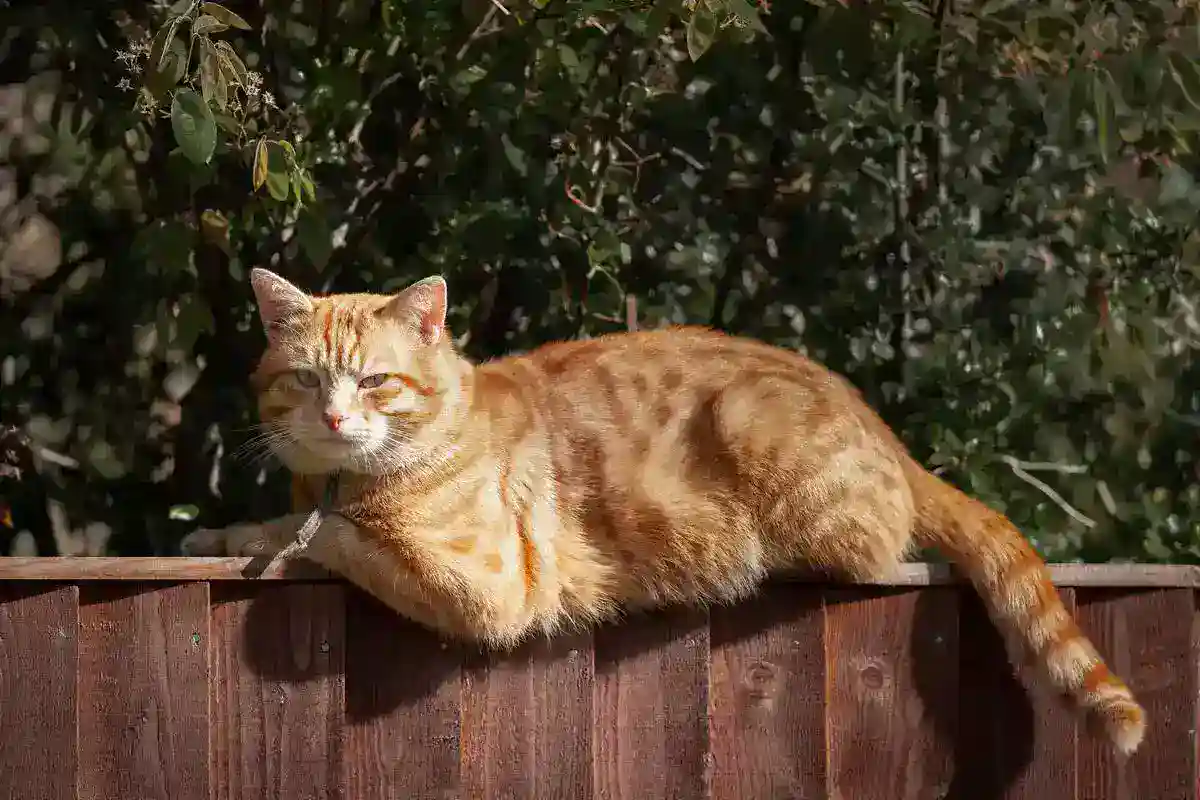
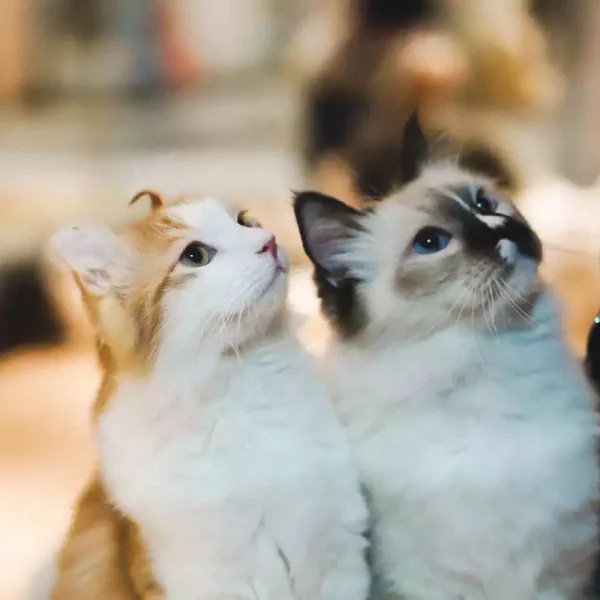
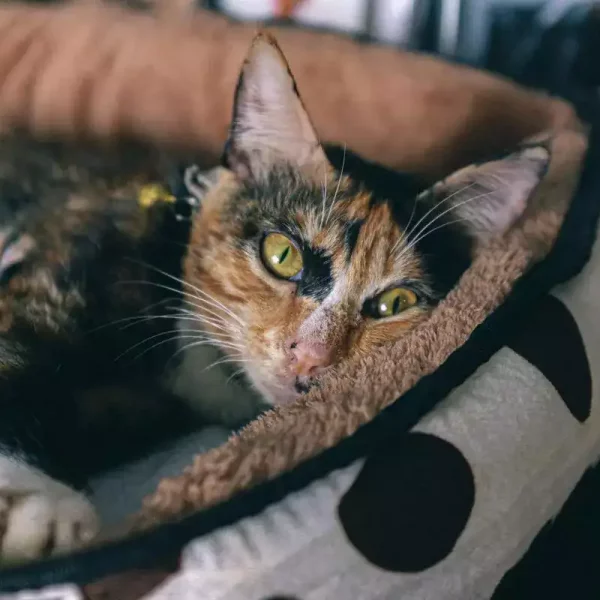
Leave a Comment